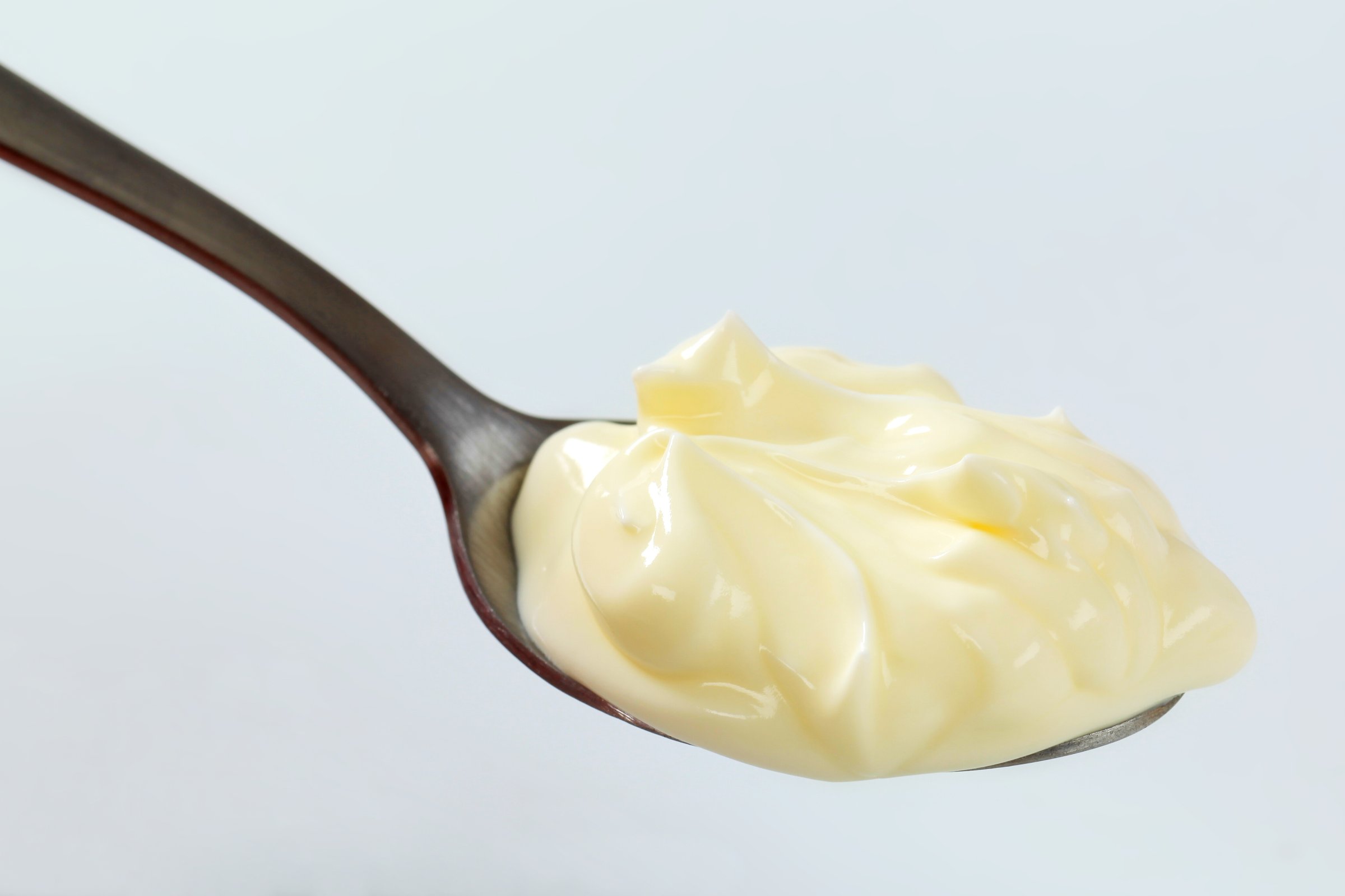
Vegan mayonnaise—which by definition doesn’t contain eggs—can’t be marketed as mayonnaise, according to the Food and Drug Administration.
Hampton Creek Foods, Inc., a health foods company whose best known product is a vegan, egg-free mayonnaise called Just Mayo, was sent a warning letter from the FDA on Aug. 12.
“According to the standard of identity for mayonnaise, egg is a required ingredient,” said the letter, which was released Tuesday and was signed by William A. Cornell, Jr., the FDA’s director of the office of compliance. “[H]owever, based on the ingredient information on the labels, these products do not contain eggs. We also note that these products contain additional ingredients that are not permitted by the standard, such as modified food starch, pea protein, and beta-carotene, which may be used to impart color simulating egg yolk. Therefore, these products do not conform to the standard for mayonnaise.”
The FDA requires that a product calling itself “mayonnaise” contain at least 65% vegetable oil and have one or more “egg yolk-containing” ingredients.
The “egg” of Hampton Creek’s Just Mayo—and Just Mayo Sriracha, which was also cited in the warning letter—is actually a byproduct of Canadian yellow pea and has fast become a popular product on grocery store shelves across the country, TIME reported last year. The company boasts investors that read like the who’s who of the tech world: Bill Gates, Peter Theil and Vinod Khosla all back the San Francisco-based company.
But in November 2014, Unilever—which owns Hellmann’s Real Mayonnaise—filed a lawsuit against Hampton Creek, arguing the lack of eggs in its Just Mayo disqualifies the product from being classified as a mayonnaise. Unilever dropped the suit less than a month later, with a company spokesperson saying in a statement, “We believe Hampton Creek will take the appropriate steps in labeling its products going forward.”
The letter from the FDA also takes issue with Hampton Creek’s claim that Just Mayo is “cholesterol free,” as well as the website tagline “You’ll never find cholesterol in our products,” saying that “it is an unauthorized synonym for ‘cholesterol free.'”
The FDA has asked Hampton Creek to respond within 15 business days of receiving the letter. Hampton Creek has yet to do so, and did not immediately respond to TIME’s request for comment.
Coffee

Grabbing some java every morning doesn’t just jump-start your day—that cup of joe has bioactive compounds that may help protect your skin from melanoma (the fifth most common cancer in the U.S.), according to a recent report in the Journal of the National Cancer Institute. Researchers found that the more coffee people downed, the less likely they were to get the disease: Those drinking four cups daily had a 20 percent lower risk of developing malignant melanoma over a 10-year period than non-coffee drinkers.
Watermelon
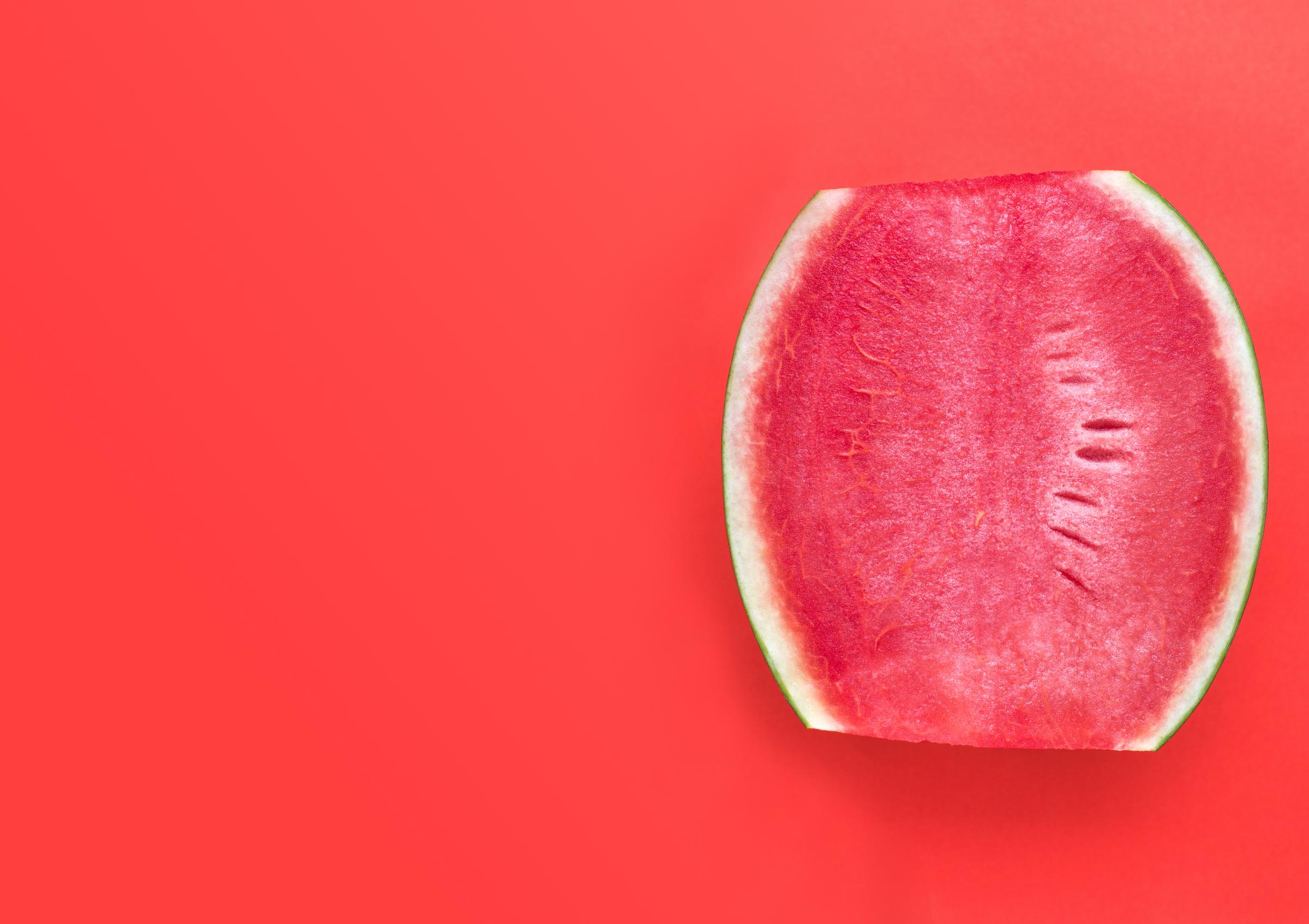
The summertime fave is loaded with lycopene. “This antioxidant compound gives watermelon and tomatoes their red color—and helps skin stave off UV damage,” says nutrition pro Keri Glassman, RD, founder of NutritiousLife.com. Researchers believe that the melon contains as much as 40 percent more of the phytochemical than raw tomatoes; that’s the equivalent of an SPF 3, so use it to bolster (not replace) your daily dose of sunscreen.
Pomegranates

The seeds of this wonder fruit are bursting with antioxidants, like vitamin C, that prevent fine lines, wrinkles and dryness by neutralizing the free radicals that weather skin. A study in the American Journal of Clinical Nutrition found that higher vitamin C intake lessened the likelihood of dryness and wrinkles in middle-aged women. Also in the fruit’s arsenal: anthocyanins (which help increase collagen production, giving skin a firmer look) and ellagic acid (a natural chemical that reduces inflammation caused by UV damage).
Blueberries
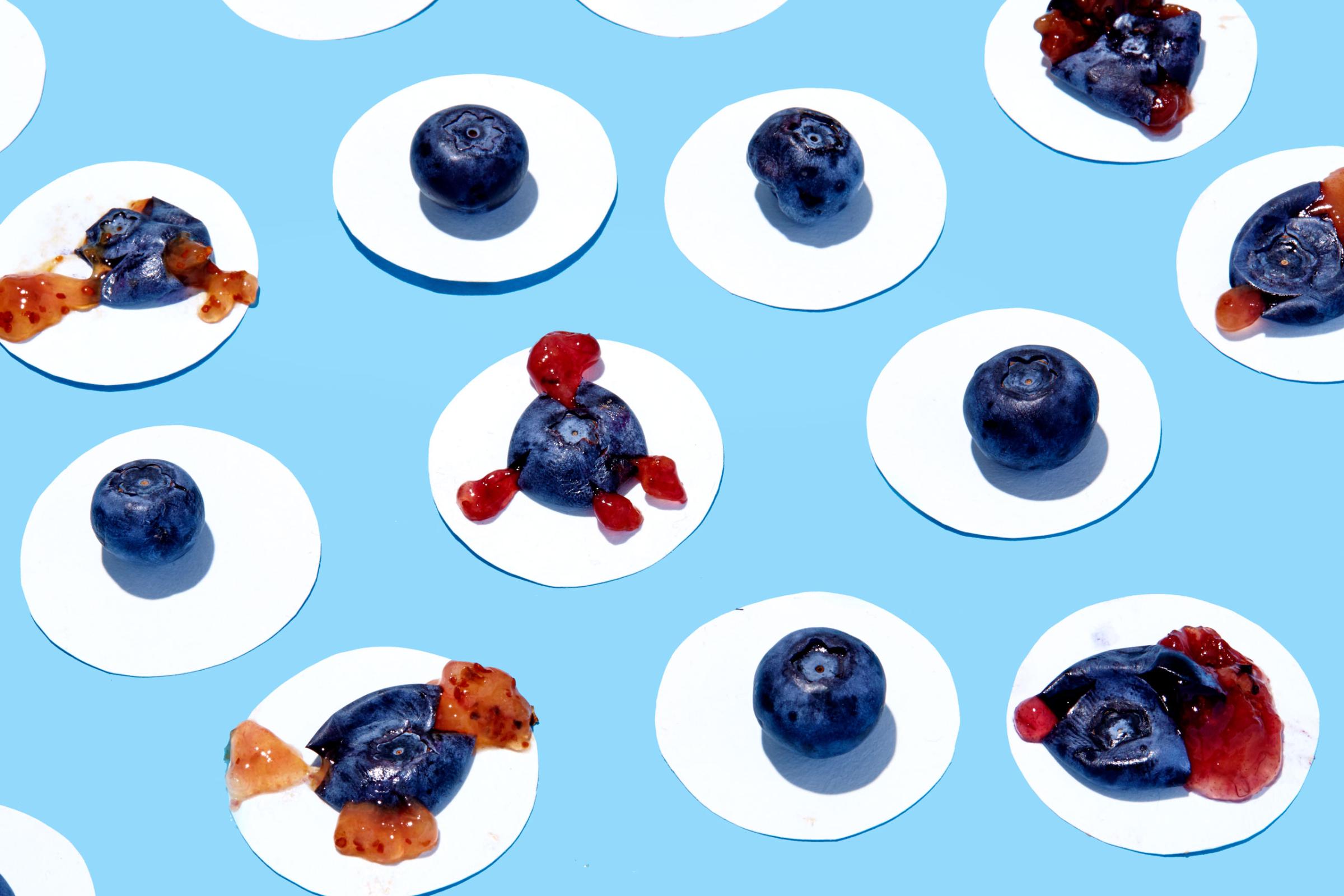
Boost radiance by popping some of these plump little beauties. Blueberries supply vitamins C and E (two antioxidants that work in tandem to brighten skin, even out tone and fight off free-radical damage), as well as arubtin, “a natural derivative of the skin lightener hydroquinone,” Dr. Zeichner says.
Lobster
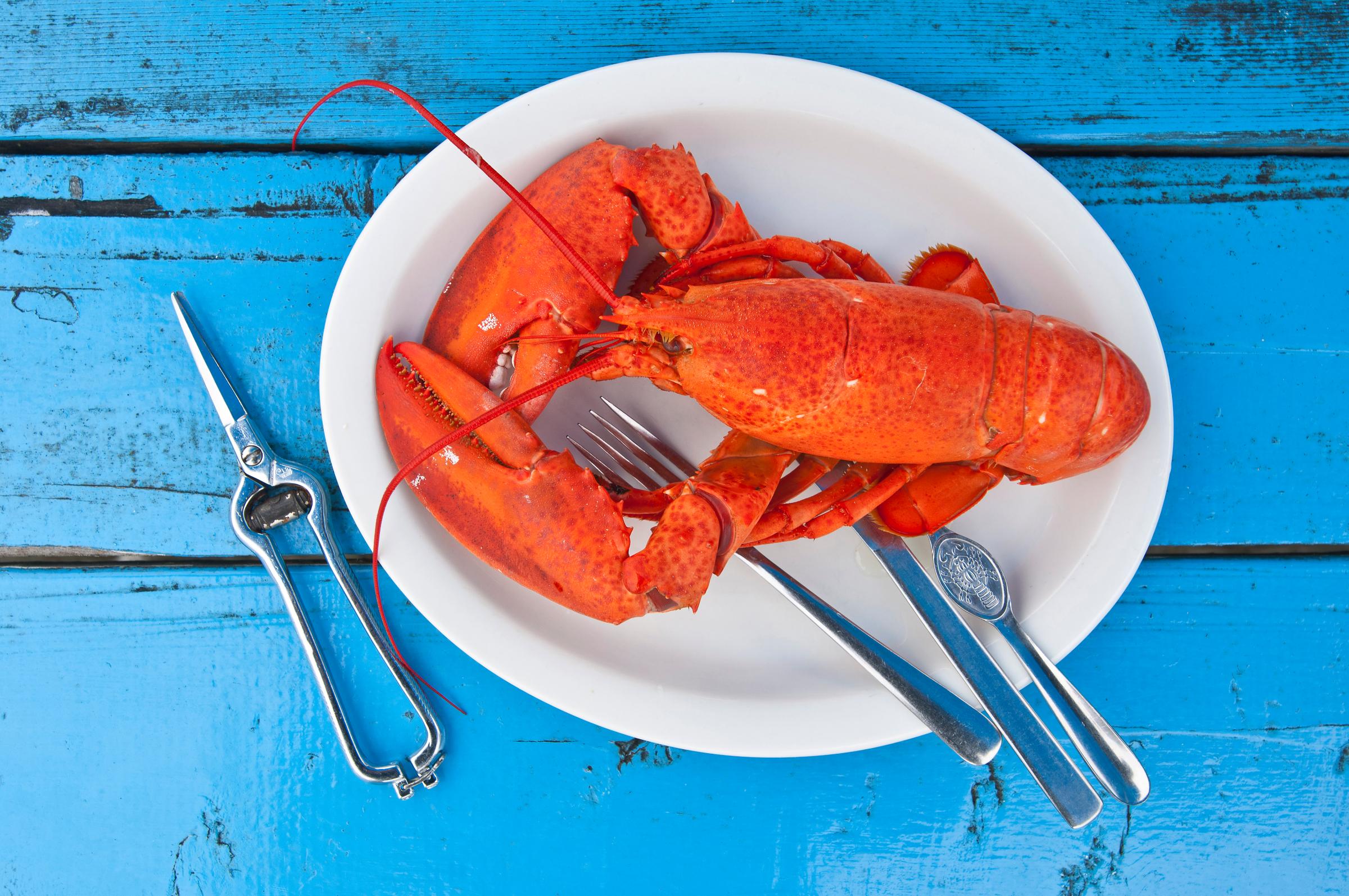
High in zinc, shellfish has anti-inflammatory properties that can help treat a range of skin annoyances, acne included. “Zinc accelerates the renewal of skin cells,” says Whitney Bowe, MD, clinical assistant professor of dermatology at the Icahn School of Medicine at Mount Sinai. “That’s why you find the nutrient in many acne medications.” In fact, research shows that people with acne have lower levels of zinc than people with clear skin.
Kale
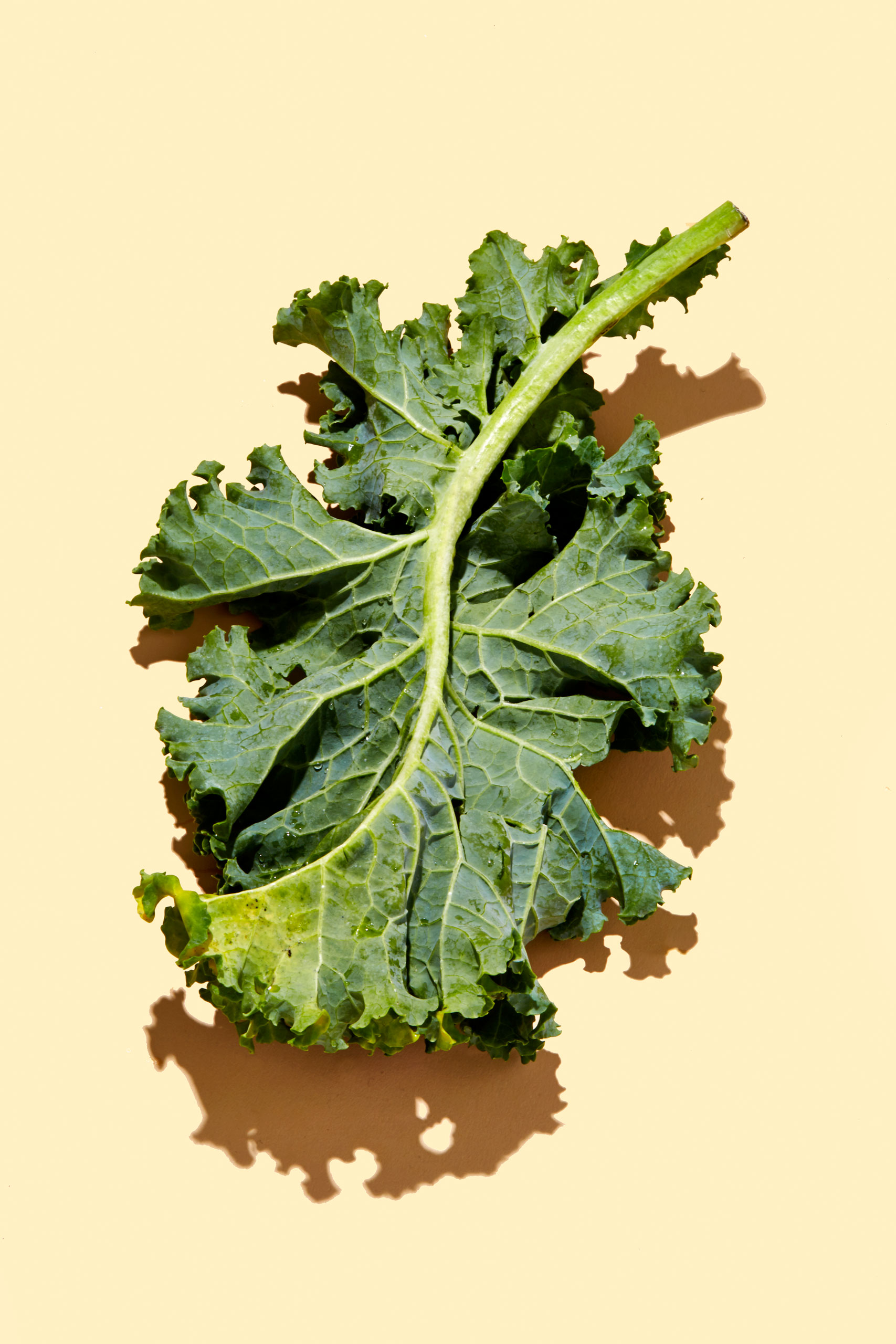
On the long list of this leafy green‘s nutrients are vitamin K (it promotes healthy blood clotting, so the blood vessels around the eyes don’t leak and cause Walking Dead-like shadows) and loads of iron. “Insufficient levels of iron in your diet can cause your skin to look pale, making it easier to spot blood vessels under the skin,” explains Howard Murad, MD, associate clinical professor of medicine at UCLA. To max out the benefits, eat the veggie cooked, not raw.
Eggs
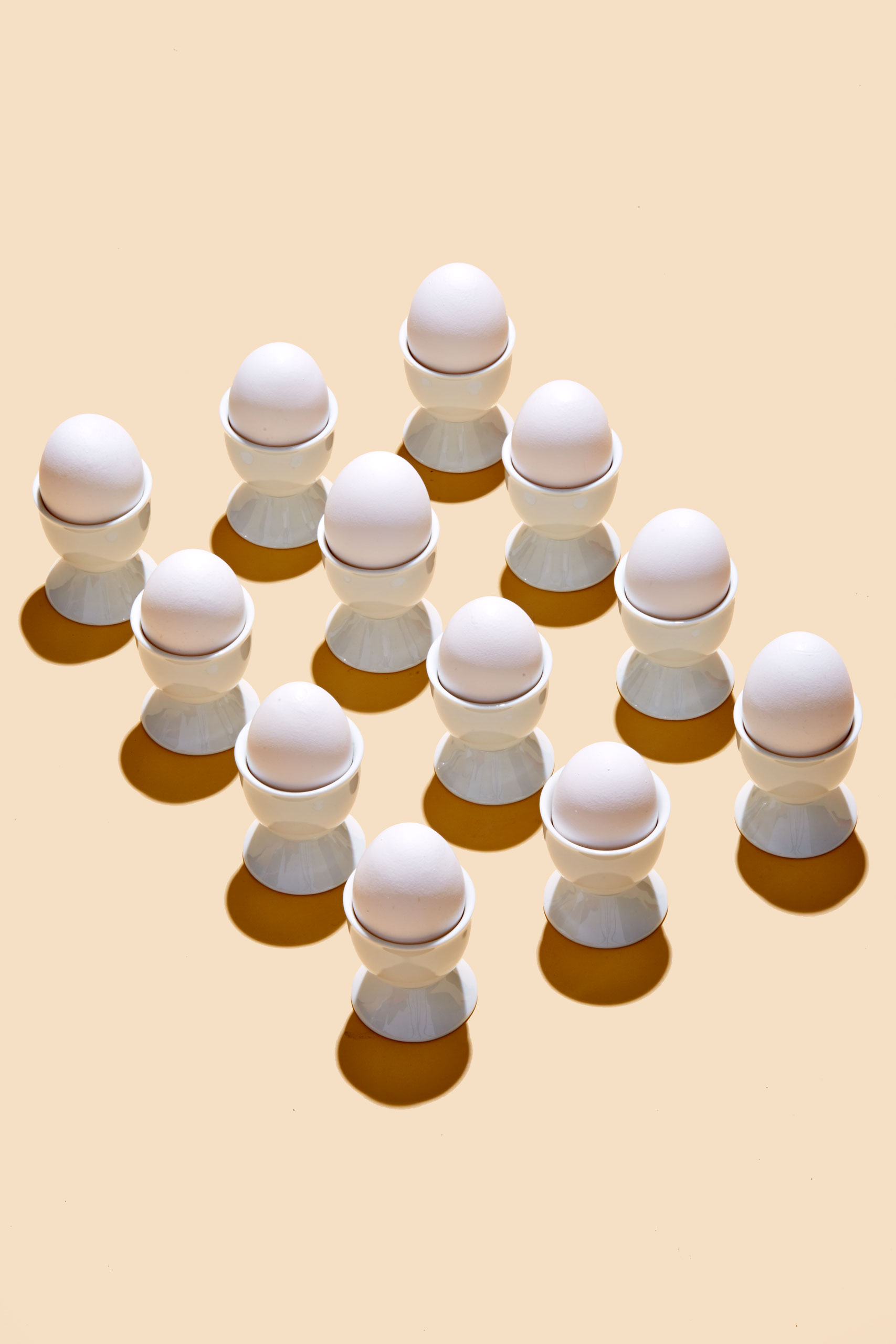
Your fingernails (toenails, too) are made of protein, so a deficiency can turn those talons soft. Keep yours thick and mani-pedi-ready by cracking smart: “Eggs are a good source of biotin, a B complex vitamin that metabolizes amino acids, which are the building blocks of protein,” says Frank Lipman, MD, director of Eleven-Eleven Wellness Center in New York City.
Walnuts
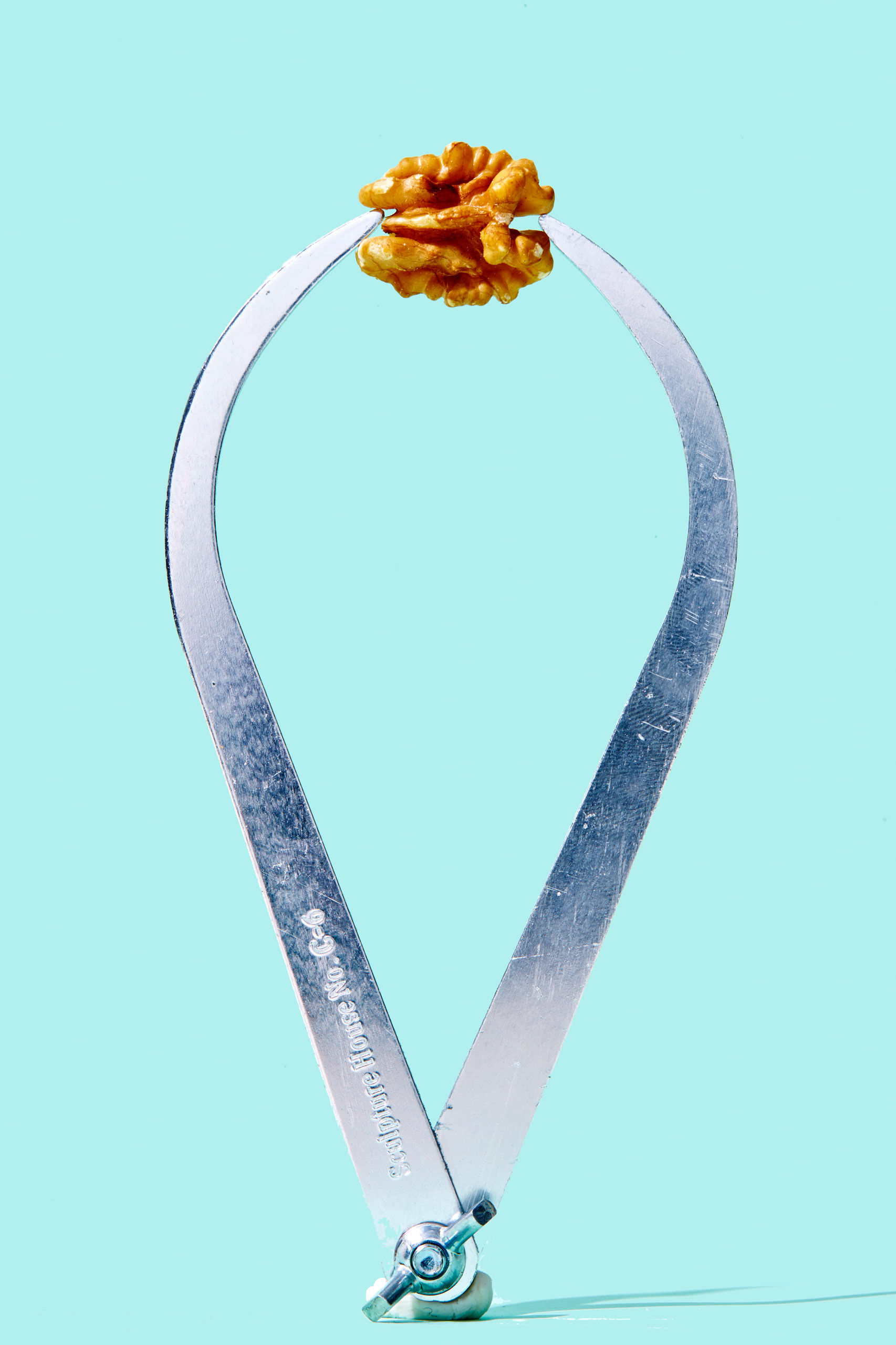
Omega-3 fatty acids (found in the natural oils that keep your hair hydrated) and vitamin E (which helps repair damaged follicles) are two secrets behind strong, lustrous strands—and these nuts are full of both, Dr. Lipman says. All you need is 1/4 cup a day. What’s more, walnuts are packed with copper, which will help keep your natural color rich: Studies show that being deficient in the mineral may be a factor in going prematurely gray.
Avocado
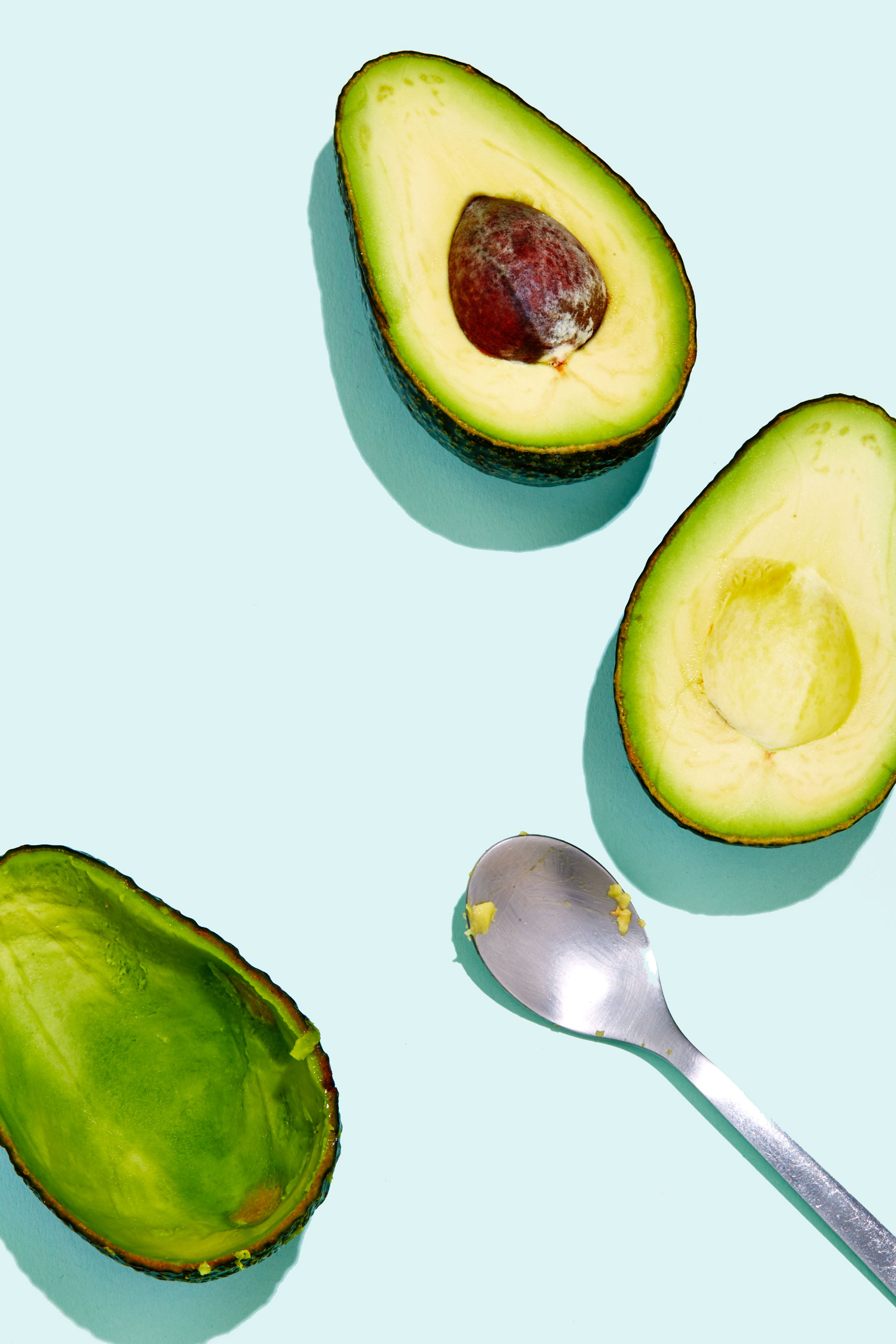
Like you need another reason to love them: These rich fruits are high in oleic acid, an omega-9 fatty acid that helps skin retain moisture in the outer layer to keep it soft, plump and supple, Dr. Bowe says.
Cantaloupe
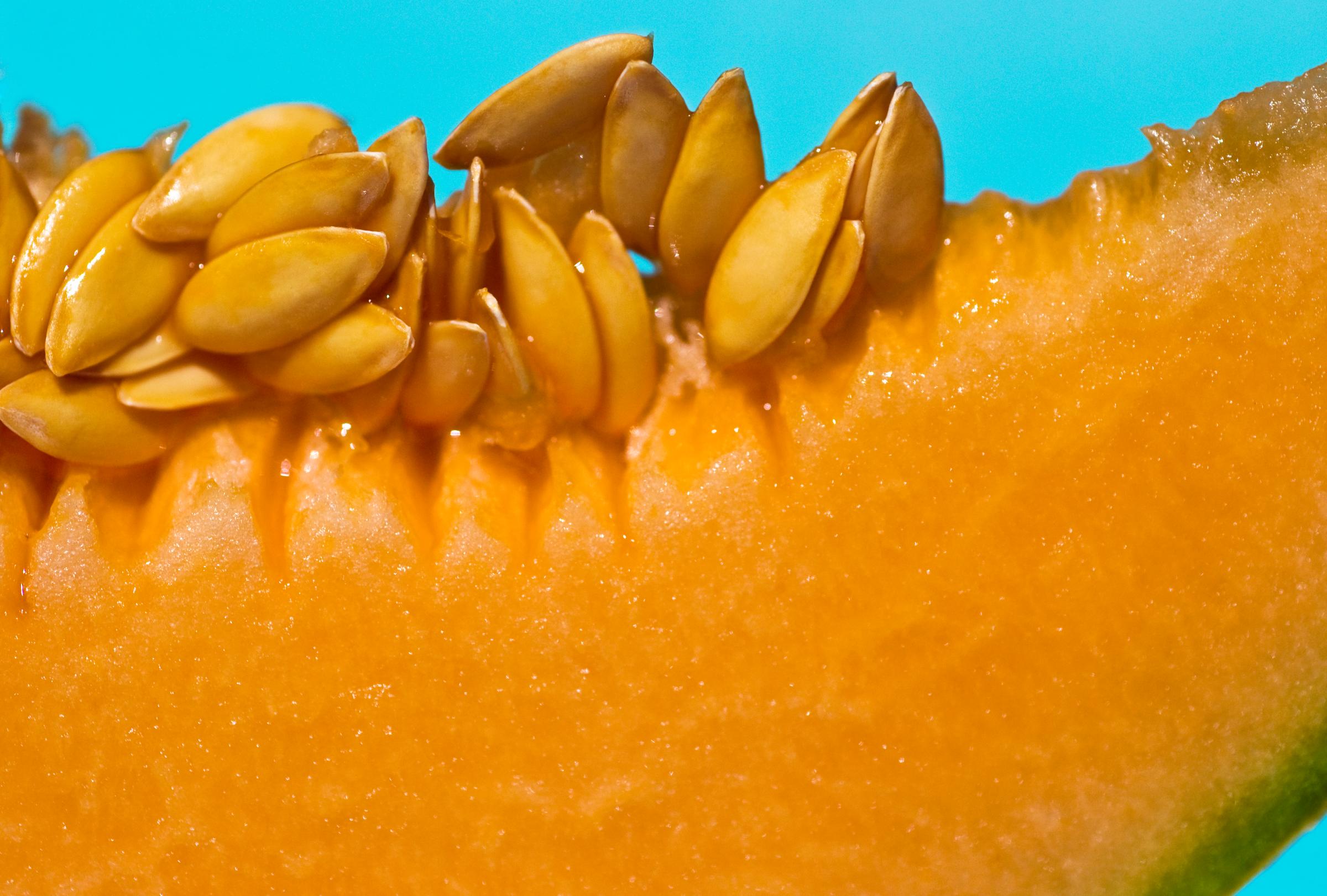
The sweet melon contains beta carotene, or vitamin A, which is believed to regulate the growth of skin cells on your scalp and sebum in the skin’s outer layer, Dr. Zeichner says. This keeps pores from getting clogged and causing flakes.
This article originally appeared on Health.com
More from Health.com:
More Must-Reads From TIME
- The 100 Most Influential People of 2024
- Coco Gauff Is Playing for Herself Now
- Scenes From Pro-Palestinian Encampments Across U.S. Universities
- 6 Compliments That Land Every Time
- If You're Dating Right Now , You're Brave: Column
- The AI That Could Heal a Divided Internet
- Fallout Is a Brilliant Model for the Future of Video Game Adaptations
- Want Weekly Recs on What to Watch, Read, and More? Sign Up for Worth Your Time
Write to Tanya Basu at tanya.basu@time.com